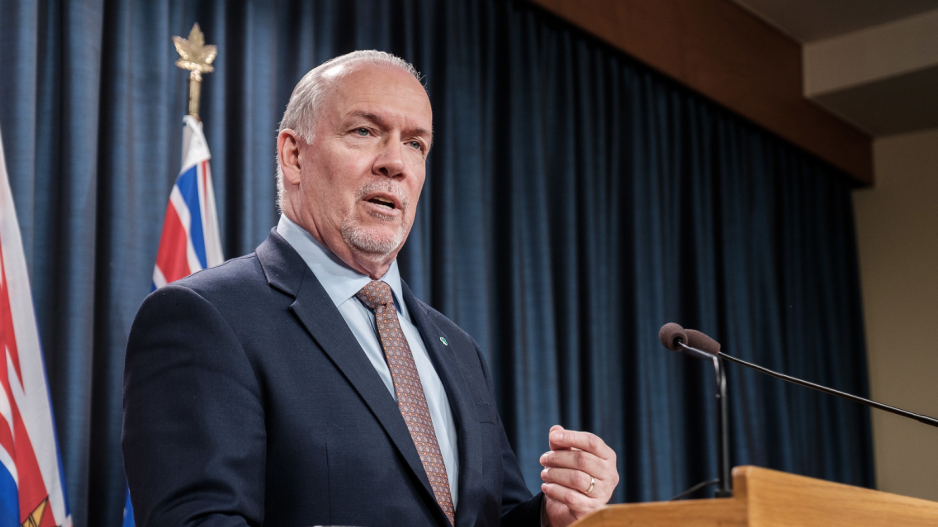In a case that spanned three years and went to B.C.’s highest court, government lawyers successfully defended Premier John Horgan’s September 2020 decision to break B.C.’s fixed election date law during the pandemic emergency.
But the NDP government is refusing to release the lump sum cost after a freedom of information request in the wake of the B.C. Court of Appeal’s Nov. 7 verdict.
Democracy Watch and Integrity BC founder Wayne Crookes filed a petition in B.C. Supreme Court two days before election day. B.C. had held four consecutive May elections every four years between 2005 and 2017 under a law enacted by the 2001-elected BC Liberal government.
They said Horgan should have at least called a confidence before going to Lt.-Gov. Janet Austin to dissolve the legislature and end the NDP minority government’s agreement with the BC Green caucus.
Horgan led his party to a B.C. NDP record 57-seat victory and majority power in the legislature in the Oct. 24, 2020 election that cost taxpayers a record $51.6 million for Elections BC to administer.
The appeal tribunal unanimously upheld B.C. Supreme Court Justice Geoffrey Gomery’s June 2022 ruling that the lieutenant governor has the power to act on a premier’s advice to call an election, whenever he or she sees fit.
The Ministry of Attorney General denied access to the aggregate cost of the government’s response to the two court actions on Tuesday. It cited a section of the freedom of information law that gives the head of a public body the discretion to refuse to disclose legal advice and communications that are subject to solicitor-client privilege.
“The solicitor-client privilege loophole in freedom of information, access to information laws does not cover the cost for legal services, for any particular case that the government has,” said Duff Conacher, co-founder of Democracy Watch. “So they're just violating the law.”
In 2015, an adjudicator with the B.C. Office of the Information and Privacy Commissioner (OIPC) ordered the Private Career Training Institutions Agency (PCTIA) to disclose how much it spent over the course of a year with the Lawson Lundell law firm. The adjudicator quoted an Ontario decision upheld after a judicial review. The Ontario adjudicator determined the payment total was “neutral information” that could not reveal anything about the nature of a privileged communication.
“In summary, I find the presumption that disclosure of the withheld information is subject to solicitor-client privilege has been rebutted,” wrote B.C. OIPC adjudicator Ross Alexander. “I reach this conclusion because there is no reasonable possibility that disclosure of the law firm identity information and the lump sum amounts paid by the Agency will directly or indirectly reveal any communication protected by the privilege, or that an assiduous inquirer, aware of background information, could use the information requested to deduce or otherwise acquire privileged communications.”
The B.C. government sent two lawyers to the two-day B.C. Supreme Court hearing in May 2022. A third lawyer was added for the one-day appeal hearing in October of this year.
Three lawyers represented Democracy Watch and Crookes at the first hearing and two lawyers plus an articled law student at the appeal court. Conacher said they provided their services free, for the public good.
Just as in the PCTIA case, it may require an OIPC adjudicator to hold an inquiry. That would mean additional costs for taxpayers.
“As with every situation of excessive government secrecy, the government wastes the public's money trying to keep information secret that the public has a right to know, information that should be proactively disclosed in a searchable database for easy access,” Conacher said.
Since he succeeded Horgan in November of 2022, Premier David Eby has consistently stated that he would stick to the Oct. 19, 2024 fixed election date. Even after a Monday news conference in which he errantly said election day is in six months.

